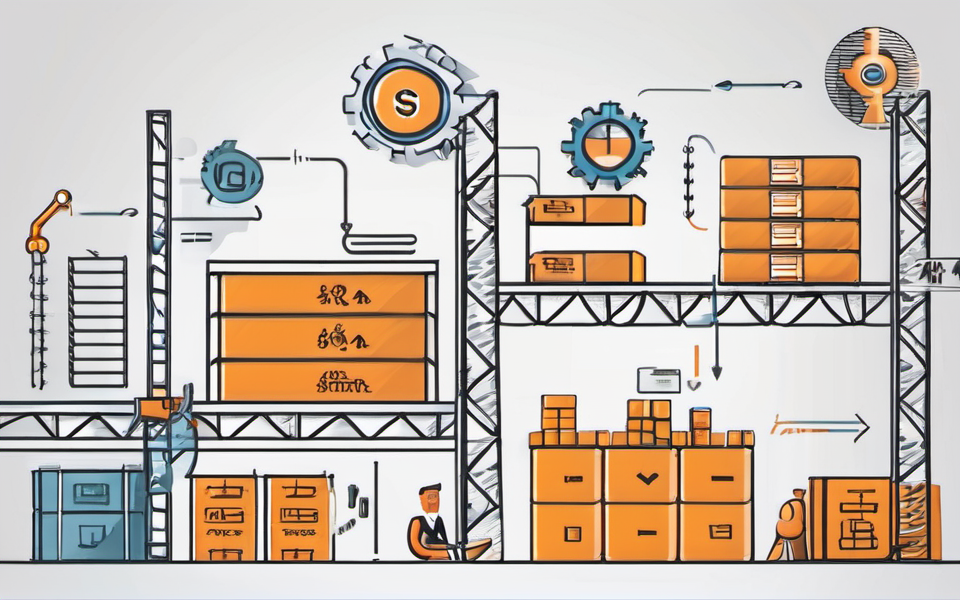Imagine a world where every shipment, every delivery, is tracked in real-time, every step meticulously monitored. Sounds like a dream, right? But what if I told you this isn’t science fiction, it’s a reality powered by technical insights.
Harnessing Technology to Safeguard Supply Chains
We live in an era of globalized supply chains that are incredibly complex and constantly in flux. This complexity brings inherent security vulnerabilities that can lead to significant financial losses, reputational damage, and even disruptions in critical services. Supply chain security, ensuring the integrity and safety of products and services from source to consumer, is no longer just a good practice; it’s an essential need.
The Power of Data Analytics
Data analytics is transforming supply chain security by providing unprecedented visibility and insights. We can now collect and analyze real-time data from various sources – sensor readings, GPS trackers, RFID tags, and even social media feeds. This allows us to identify potential threats and vulnerabilities long before they manifest into real-world problems.
Predictive Analytics: Foreseeing Disruptions
Predictive analytics, a crucial element of data analytics, takes it a step further by utilizing historical data to predict potential risks. By analyzing trends in weather patterns, economic fluctuations, and geopolitical events, companies can proactively identify and mitigate potential disruptions before they occur. This is especially relevant for global logistics, where factors like natural disasters, political instability, and trade wars can drastically impact supply chains.
Cybersecurity: Defending Against Digital Threats
Cybersecurity is becoming an increasingly vital aspect of supply chain security, with cyberattacks posing a significant risk. Through data analytics, we can identify and address vulnerabilities within our networks and systems, preventing unauthorized access and data breaches. By implementing robust cybersecurity protocols, like firewalls and multi-factor authentication, and staying ahead of the latest cybersecurity threats and cybercrime, we can strengthen our defenses and ensure the safe flow of information within the supply chain.
Leveraging Advanced Technologies
Beyond data analytics, various emerging technologies are revolutionizing the landscape of supply chain security. Let’s explore some key players:
Blockchain: Ensuring Transparency and Traceability
Blockchain technology, with its immutable record-keeping capabilities, provides a robust solution for ensuring the transparency and traceability of products throughout the supply chain. Each transaction and movement is recorded on the blockchain, making it difficult to tamper with or forge data. This is particularly useful for sectors dealing with high-value goods or sensitive information, such as pharmaceuticals or high-tech electronics.
Artificial Intelligence: Smarter Risk Management
Artificial intelligence (AI), with its ability to analyze massive datasets and identify patterns, plays a critical role in risk management. AI-powered systems can analyze historical data to predict potential security breaches and identify suspicious activities. This helps organizations implement more targeted security measures and respond proactively to threats.
Internet of Things (IoT): Connecting the Supply Chain
The Internet of Things (IoT) revolutionizes supply chain management by connecting physical assets – from vehicles and containers to products themselves – to the internet. This real-time data, combined with AI-powered analysis, allows companies to track every step of the supply chain journey. The ability to monitor shipments in real-time provides critical insights into potential security breaches, shipment delays, and even product tampering.
Building a Secure Supply Chain for the Future
The future of supply chain security lies in the continued adoption and integration of these cutting-edge technologies. By leveraging data analytics, AI, blockchain, and IoT solutions, organizations can achieve greater transparency, accountability, and resilience.
Collaboration and Knowledge Sharing
It’s not just about the technologies themselves but also about fostering collaboration and knowledge sharing within the industry. Through public-private partnerships and open data initiatives, we can pool resources, develop common standards, and build a more secure and resilient global supply chain.
The Human Factor in Security
While technology plays a crucial role, it’s equally important to remember the human factor in supply chain security. Robust training programs, awareness campaigns, and a strong company culture of security are essential for fostering vigilance and responsible behavior among employees.
Key Takeaways:
- Supply chain security is a vital priority in today’s complex and interconnected world.
- Data analytics offers unparalleled visibility and insights into potential vulnerabilities and threats.
- Emerging technologies like AI, blockchain, and IoT revolutionize supply chain security by enhancing transparency, accountability, and responsiveness.
- A collaborative approach involving public-private partnerships and knowledge sharing is critical for a robust and secure global supply chain.
- Remember that human factors play a vital role in ensuring supply chain security.
The future of supply chain security is bright, fueled by technology and human ingenuity. By embracing these technological advancements and fostering a collaborative spirit, we can build a safer, more resilient, and sustainable supply chain for all.









